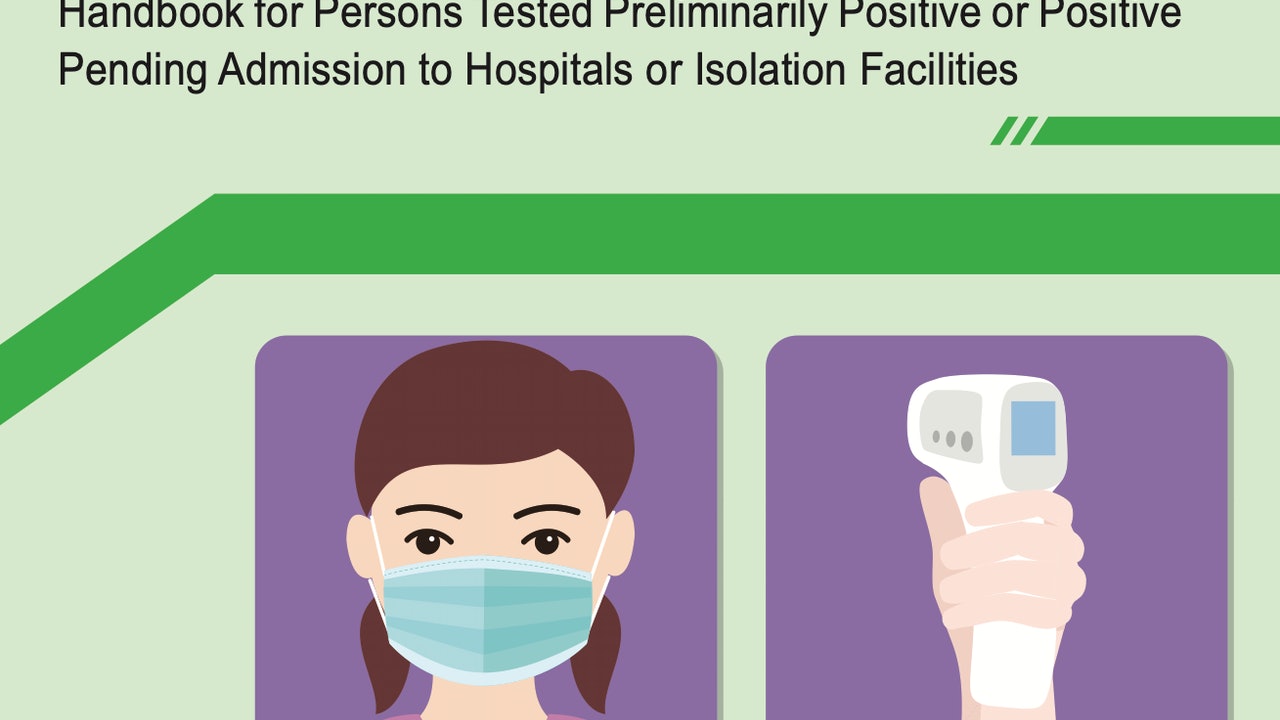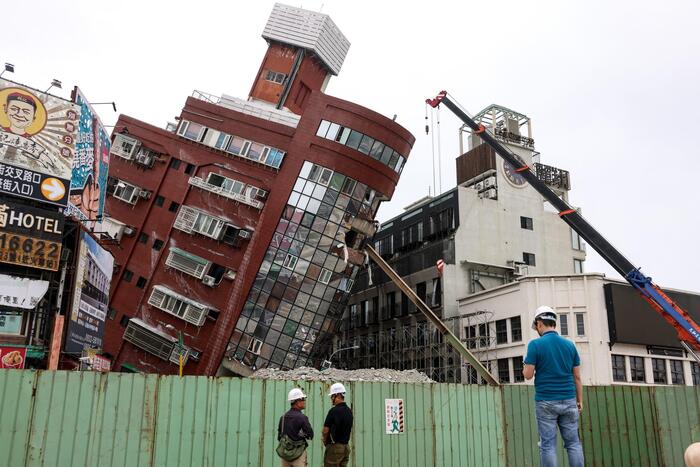The fifth wave of the epidemic is severe. Since the outbreak on January 22, there have been more than 40,000 new confirmed cases. However, since the use of isolation beds in public hospitals has reached the upper limit, hospitals can only build temporary hospitals in open spaces to accommodate high-risk confirmed patients. For example, the elderly and children, as for the tens of thousands of people who are generally diagnosed, have not been sent to the hospital for treatment in time and need to stay at home and self-isolate.
The epidemic has lasted for nearly a month, but the SAR government has only released the "Instructions for those who have not been admitted to the hospital" until a few days ago. Compared with the home isolation guidelines in the United Kingdom and Taiwan, it can be said that it is quite late.
The home quarantine guidelines for confirmed cases issued by the SAR government are relatively simple and only provide some basic information.
Hong Kong: provide basic information
The fifth wave of the epidemic started to show signs of outbreak at the end of last year, and began to spiral out of control in the middle and late last month. However, due to the lack of preparation of the SAR government, the supply of hospital beds and isolation facilities is in short supply. At present, tens of thousands of confirmed patients are stranded in the community and cannot be sent to the hospital. .
However, for more than a month, the authorities have not provided clear guidelines for confirmed patients who need to be quarantined at home, and the relevant enquiry hotlines are also very busy and are often in a busy state, making the affected citizens quite helpless.
As can be seen from the "Notices for People Still To Be Hospitalized" on the SAR Government's thematic website on COVID-19, the authorities updated the last Wednesday (February 16), last Saturday (February 19) and yesterday (February 20) respectively. Four documents directly related to "preliminarily confirmed or confirmed persons awaiting admission to hospital or isolation facilities" are health advice and infographics, brochures and frequently asked questions.
The earliest published "Health Advice" and "Infographic" briefly explained some basic information in text and icons, including avoiding face-to-face contact with people living with them, wearing a mask when leaving the room, disinfecting the bathroom immediately after each use, and avoiding sharing Eating meals or sharing personal belongings; the "handbook" released three days later seems to be more detailed, with guidelines on health monitoring, infection control, living arrangements, medical needs and electronic wristbands, etc., but it is also well known The basic information does not provide specific indicators for the confirmed patients to measure whether the condition has deteriorated and whether they need to seek medical treatment.
The "Suspected COVID-19: Important Information for Your Safety During Home Isolation" issued by the National Health Service, a public health service in the United Kingdom, provides more specific medical indicators for confirmed patients.
(screenshot of website)
UK: List specific medical indicators
The National Health Service, the UK's public health service, issued the sixth edition of "Suspected COVID-19: Important Information for Your Safety During Home Isolation" (hereinafter referred to as the "Information") this month. Provides clear guidance for home quarantined patients who have been diagnosed with COVID-19 but have not yet been hospitalized.
The "Information" lists the common symptoms and coping guidelines of new coronary pneumonia: first, if people in England have symptoms of new coronary pneumonia, they can apply for nucleic acid testing online through the website; For patients with symptoms such as oxygen levels lower than normal readings, "Information" recommends contacting 111 (UK Medical Hotline); as for some home-isolated patients with severe symptoms such as coughing up blood, collapse or fainting, they should call 999 (emergency medical services) .
The UK's home isolation guidelines provide clearer information for pregnant women or self-isolating patients who have just given birth.
(screenshot of website)
"Pregnant women" are a high-risk group of the new crown. Because they are related to the life and health of the fetus, they are inevitably more worried than the average person about being infected, and their psychological anxiety after infection will also be higher.
In view of this, "Information" specifically provides clear guidance for self-isolated patients who are pregnant or who have just given birth, list out what discomfort should call 999 for help, and encourage patients to trust their intuition and seek emergency care when in doubt about their health. To ensure the safety of pregnant women and their fetuses, the government will arrange general practitioners, midwives or obstetrics teams to assess the symptoms of patients. To better understand the situation of pregnant women, pregnant women are urged to use pulse oximeters at home to monitor blood oxygen levels .
On the other hand, Hong Kong, especially for pregnant women, has no relevant guidelines and no appropriate support.
Several media reported earlier that at least 60 pregnant women have been diagnosed in public hospitals in the past two weeks, exceeding the total in the two years since the outbreak began. Most of them have not been vaccinated. vaccination.
Some medical experts recommend that pregnant women with symptoms should be prioritized for admission to hospital, because pregnant women have a high chance of serious complications after infection, and the virus may transmit the fetus through the placenta, and even cause premature birth or death of the baby.
But in addition to expert advice, the Hong Kong government should uphold empathy, walk ahead of the epidemic, and do everything possible to reassure those diagnosed.
The Centers for Disease Control and Prevention of the Taiwan Ministry of Health and Welfare provides comprehensive home quarantine guidelines for confirmed cases, contacts and caregivers.
(screenshot of website)
Taiwan: Covering confirmed cases, contacts, caregivers
The Centers for Disease Control and Prevention of the Taiwan Ministry of Health and Welfare provides comprehensive home quarantine guidelines for confirmed cases, contacts and caregivers.
For confirmed cases, the guidelines state that in order to reserve medical resources for severely ill patients, mildly infected persons should try to stay in one room at home, use different bathroom equipment with their family members, and avoid contact with the elderly, young children or immunocompromised family members. .
Considering that there may be unexpected situations during home isolation, the guidelines specifically point out that while waiting for the public health personnel to notify the arrangement at home, if you encounter an emergency such as a fire and have to leave the room or choose the location, no penalty will be imposed.
For the family members who live with the confirmed cases, the Taiwan authorities provide advice to help them take better care of the patients at home; at the same time, the guidelines also remind family members that if they are a group at high risk of severe new coronary pneumonia, it is not appropriate to directly To take care of confirmed patients, and in the process of caring, avoid direct contact, avoid sharing meals and items, and prohibit visitors.
The guidelines also recommend that caregivers of confirmed patients should pay attention to their own health conditions, and can be isolated at home for 14 days after the end of the care.







/cloudfront-eu-central-1.images.arcpublishing.com/prisa/3I74UEXLYRBBRPGPSGWNN6WXH4.jpg)